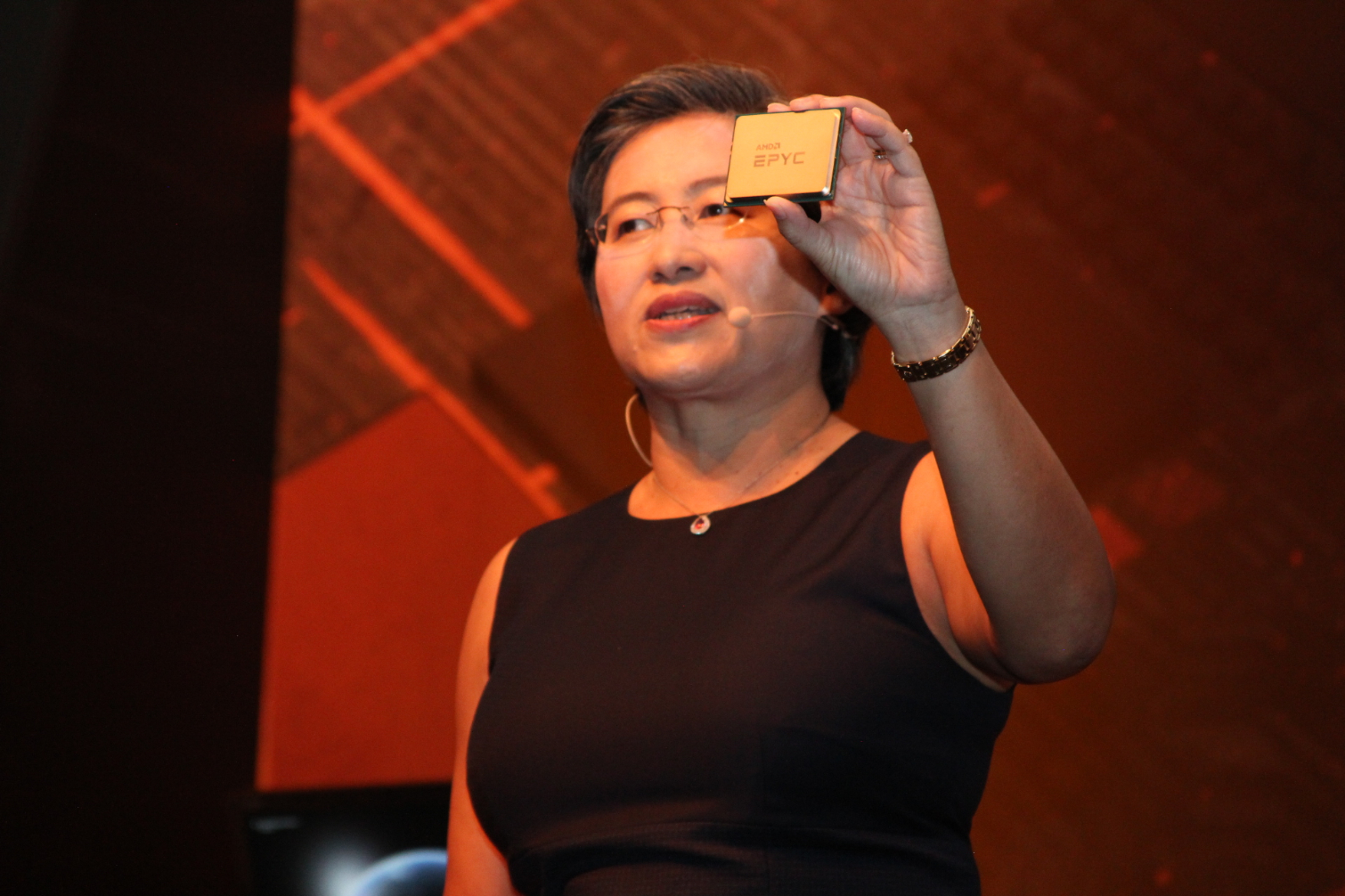AMD to Keynote CES for First Time, Showcase 7nm Products
AMD CEO Dr. Lisa Su will be delivering a keynote address at CES 2019, the event announced today.
First Keynote, First to 7nm
The announcement marks the first time AMD has ever delivered a keynote address at CES. The honors of a keynote are usually earmarked for companies with groundbreaking new technologies or products, and AMD appears it will bring exactly that to the annual Las Vegas event. The company stated it would be debuting new 7nm products at CES, some of which we already knew about (such as the anticipated Navi architecture and its potential to make a significant impact on the graphics market next year). However, AMD also let on that it wouldn’t just be coming to CES with some new graphics cards.
“In 2019, AMD will catapult computing, gaming and visualization technologies forward with the world's first 7nm high-performance CPUs and GPUs,” the announcement said.
From this, we can safely assert that AMD also has 7nm CPU silicon in production. We already knew this to be the case when the company showed off its 7nm EPYC processor at Computex 2018, but AMD has been quiet about the CPUs ever since. Now, it appears that the new processors could be making their official debut this January.
Third Generation Ryzen CPUs?
Although we can only confirm the existence of 7nm EPYC CPUs, it’s not out of the realm of possibility that AMD could be preparing to launch new client-side processor products. The term “Zen 2” has been floating around the internet a lot lately, with unsubstantiated rumors aplenty that third generation Ryzen CPU products are in the works. This is just hearsay, but with AMD running full throttle towards the 7nm manufacturing node, it may not be a long shot to say gamers may have more consumer-grade AMD CPU options in 2019.
CES 2019 runs from January 8-11, with AMD’s keynote taking place from the Venetian Palazzo Ballroom on January 9 at 9 a.m. Pacific Time.
Get Tom's Hardware's best news and in-depth reviews, straight to your inbox.
Derek Forrest was a contributing freelance writer for Tom's Hardware. He covered hardware news and reviews, focusing on gaming desktops and laptops.
-
Olle P Reply
I prefer 1 GHz base (at idle, to save energy and allow efficient cool-down between tasks), and then quickly ramp up to >4 GHz when all cores are engaged and >5 GHz for a single thread load.21374816 said:4.2. GHz base clocks for desktop please.
Automatically controlled individual speeds on the cores would also be nice.
-
AnimeMania Reply21376394 said:
I prefer 1 GHz base (at idle, to save energy and allow efficient cool-down between tasks), and then quickly ramp up to >4 GHz when all cores are engaged and >5 GHz for a single thread load.21374816 said:4.2. GHz base clocks for desktop please.
Automatically controlled individual speeds on the cores would also be nice.
Does rapid and drastic temperature fluctuations have adverse effects on CPU longevity? -
Olle P Reply
Yes! Thermal fatigue (as it's called) is a known factor. It rarely comes into play though, since the CPU is obsolete well before you reach its technical end of life anyway.21377034 said:Does rapid and drastic temperature fluctuations have adverse effects on CPU longevity?
To avoid thermal fatigue it's better to use water cooling than regular heatpipes, since the former will make changes in CPU temperature go slower.
